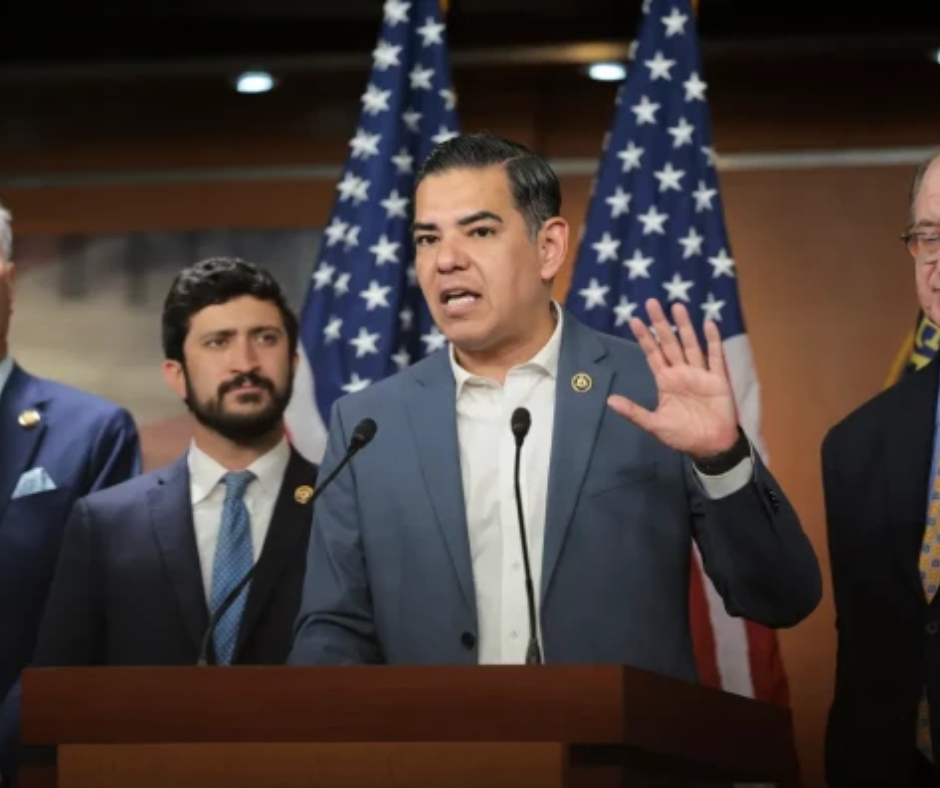
In a move that has rattled Washington, former President Donald Trump announced the dismissal of U.S. Commissioner of Labor Statistics Erika McEntarfer, accusing her of manipulating national employment data for political motives — without offering evidence to support the claim.
Trump made the announcement on August 1 via his social media platform, Truth Social, where he criticized the July jobs report that showed only 73,000 jobs were added — significantly below the projected 105,000. He also pointed to downward revisions for May and June totaling 258,000 jobs, calling the entire reporting process “rigged.”
“We need accurate Jobs Numbers,” Trump wrote. “They can’t be manipulated for political purposes.”
A Sudden Shakeup at the Bureau of Labor Statistics
In a stunning and highly controversial move, former President Donald Trump has fired Dr. Erika McEntarfer, the U.S. Commissioner of Labor Statistics, accusing her of deliberately skewing employment data to serve political ends. The dismissal, announced on Trump’s Truth Social platform on August 1, has sent ripples through Washington, with economists, statisticians, and political analysts questioning both the timing and the rationale behind the decision.
The core of the issue stems from July’s jobs report, which revealed that the U.S. economy added only 73,000 jobs—far below economists’ forecast of 105,000. Additionally, job gains for May and June were revised downward by a combined 258,000, sparking concern over a possible economic slowdown. But Trump saw more than just economic warning signs—he saw what he called political tampering.
Trump’s Claims: A Battle Over Trust and Data
Without offering concrete evidence, Trump alleged that McEntarfer—who was appointed by President Joe Biden and confirmed by the Senate in early 2024—was involved in a scheme to “manipulate” jobs data to make the Republican-led economic performance appear weaker and to bolster Democratic nominee Kamala Harris during the 2024 election.
“We need accurate Jobs Numbers,” Trump declared. “Important numbers like this must be fair and accurate—they can’t be manipulated for political purposes.”
He went further, accusing McEntarfer of overseeing previous reports that were later revised downward, asserting that the agency had released overly optimistic data before the election, only to quietly correct them afterward.
However, official records tell a different story. The U.S. Department of Labor publicly disclosed in August 2024—well before the election—that job creation between April 2023 and March 2024 had been overestimated by 818,000. This type of benchmarking revision is common and part of the agency’s routine process of aligning survey data with tax records.
Who Is Erika McEntarfer?
Dr. McEntarfer is no political novice. A seasoned labor economist with more than two decades in federal service, she has held positions at both the U.S. Census Bureau and the Treasury Department. Her appointment to the Bureau of Labor Statistics (BLS) was met with bipartisan support at the time, largely due to her professional track record and nonpartisan background.
Yet, in Trump’s view, her leadership raised questions—not for her credentials, but for what he calls “untrustworthy numbers.” Speaking to reporters, he didn’t mince words:
“I fired her because I think her numbers were wrong.”
Pushback from the Statistical Community
The reaction from former Labor Department officials has been swift and unequivocal. A statement released by a coalition of former BLS commissioners and staff—signed by William Beach, who served as commissioner under Trump—called the accusation “baseless” and “damaging.”
“The Commissioner does not determine what the numbers are but simply reports on what the data show,” the statement clarified.
Experts emphasized that the methodology behind jobs data is purposefully decentralized. Hundreds of career civil servants contribute to the report each month, ensuring that no single individual can alter the outcome. The final report goes through multiple layers of verification before release.
Heidi Shierholz, former chief economist at the Labor Department, said it would be “literally impossible” for any one person—even the commissioner—to manipulate the figures without a massive number of people noticing.
“They’re not political,” she added. “There’s no way those numbers could be faked without widespread objection.”
The Complexity of the Jobs Report
Keith Hall, who led the BLS from 2008 to 2011 under Presidents George W. Bush and Barack Obama, explained that the final employment figure is built from inputs provided by hundreds of economists and survey specialists. According to Hall, even eight to ten staff members see the final number just before its release.
“It’s essentially impossible for the numbers to be fudged,” he said. “All the detail must add up, and many eyes are on it.”
Hall further criticized Trump’s remarks, noting that if there is a downturn in employment trends, such developments are typically reflected across multiple economic indicators—not just the monthly jobs report.
“If the president wants to know what made the numbers weak, he needs to look in the mirror, not at BLS,” he said.
Fallout and What Comes Next
Despite the backlash, Trump has not yet announced a replacement for McEntarfer, stating only that he plans to appoint “someone much more competent and qualified.” The sudden vacancy in one of the government’s most respected statistical agencies has left both markets and officials wondering how politicized the traditionally neutral BLS might become under future leadership.
Labor Secretary Lori Chavez-DeRemer initially did not challenge the July jobs report but later issued a statement expressing agreement with Trump’s emphasis on data integrity.
Meanwhile, many in the economic community have expressed concerns that this episode could undermine public trust in government-produced statistics at a time when the economy is facing new challenges.
The firing of Erika McEntarfer marks a rare and deeply controversial moment in the history of the U.S. Bureau of Labor Statistics—an agency built on decades of nonpartisan credibility. While Donald Trump’s accusations have fueled political debate and drawn sharp responses from former officials and economists, the broader concern now lies in the precedent this sets. If statistical agencies become political battlegrounds, the reliability of critical economic data could be called into question by the very institutions meant to uphold it. As the dust settles, the country finds itself not only facing uncertainty in the job market but also confronting the fragility of trust in facts themselves.
Appreciating your time:
We appreciate you taking the time to read our most recent article! We appreciate your opinions and would be delighted to hear them. We value your opinions as we work hard to make improvements and deliver material that you find interesting.
Post a Comment:
In the space provided for comments below, please share your ideas, opinions, and suggestions. We can better understand your interests thanks to your input, which also guarantees that the material we offer will appeal to you. Get in Direct Contact with Us: Please use our “Contact Us” form if you would like to speak with us or if you have any special questions. We are open to questions, collaborations, and, of course, criticism. To fill out our contact form, click this link.
Stay Connected:
Don’t miss out on future updates and articles.








